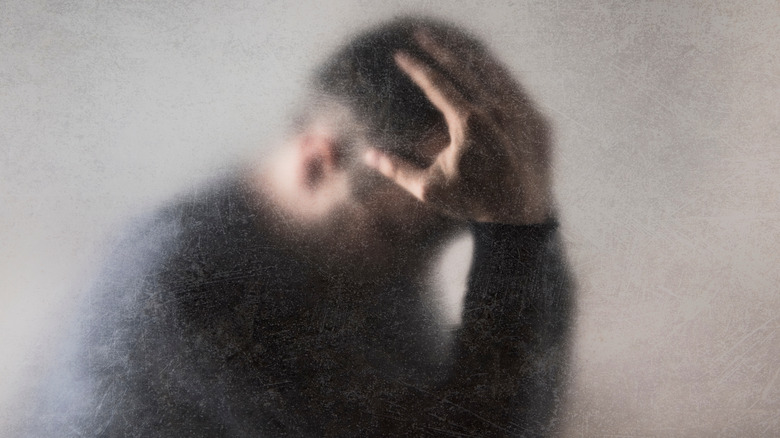What It Really Means When You Have Persistent Depressive Disorder
Have you heard of persistent depressive disorder? Persistent depressive disorder, also known as PDD, is a kind of chronic depression that is long-term and can last for years (via Mayo Clinic). You may have also heard this condition referred to as "dysthymia." Women are more likely to be diagnosed with PDD, and folks with this condition are also likely to be diagnosed with major depression at some time over the course of their lives (via Mount Sinai).
Depression is a serious and very common condition that affects around 280 million people worldwide (via World Health Organization). As a result of the prevalence of depression, you likely know many of the common symptoms of depression – from sadness and irritability to fatigue and sleeping problems. However, what is it that sets persistent depressive disorder apart from other types of depression? What causes persistent depressive disorder, and what are the treatment options for folks who receive this diagnosis?
The symptoms of persistent depressive disorder
What causes persistent depressive disorder varies from person to person (via Mayo Clinic). Your brain chemistry can greatly affect your mood, and how the neurotransmitters in your brain function can also cause PDD. This disorder is also known to be genetic, which means having a relative with PDD makes you more likely to develop it. Folks with a mood disorder or even low self-esteem are more likely to get PDD as well. Otherwise, as is true with other forms of depression, life events and traumatic experiences can induce PDD.
PDD shares many of its symptoms with major depression, but folks with PDD experience sad and hopeless moods most days that last for two years or longer (via Mount Sinai). For almost all of that period of time, people experiencing PDD feel empty and disinterested in engaging in activities. They often also experience guilt and worry, as well as self-doubt and low self-esteem. Those who have PDD often struggle to make decisions, concentrate, and engage with other people. They also frequently experience appetite changes and the inability to get the right amount of sleep. If you have PDD, you may also experience bouts of anger, moodiness, and a frequent lack of energy.
How to treat persistent depressive disorder
Luckily, if you or someone you know is diagnosed with persistent depressive disorder, you are far from out of options. If you feel that you've been experiencing symptoms of PDD, the first step is to see a doctor or healthcare professional who can help you with next steps (via Mayo Clinic). Talk therapy like cognitive behavioral therapy or psychotherapy is often a huge help in dealing with depression symptoms (via Mount Sinai). You may need to shop around in order to find a therapist who is the best fit for you.
In addition to consulting with professionals, there are some lifestyle changes that can greatly help PDD symptoms. Ensuring that you get plenty of sleep and enough exercise can set you up for success. It's also helpful to have a diet high in nutrients and steer clear of alcohol and drugs. It's also highly beneficial to engage in activities that you enjoy and keep in contact with people who make you feel loved and supported.
If you or someone you know needs help with mental health, please contact the Crisis Text Line by texting HOME to 741741, call the National Alliance on Mental Illness helpline at 1-800-950-NAMI (6264), or visit the National Institute of Mental Health website.


